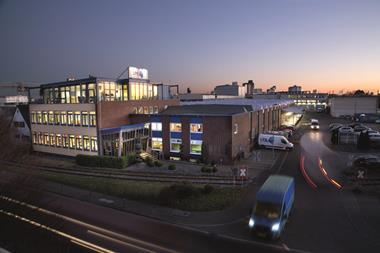FedEx Express has continued to modernise its European air fleet with the addition of a new Boeing 767-300F to be used on its Madrid-Paris route.
The express firm said the new aircraft offered "superior environmental performance compared with the aircraft it replaces, including noise reduction benefits".
The new Boeing 767F can carry up to 91,000 pounds of cargo (41 tonnes), which represents an increase in capacity of approximately 16% compared to the aircraft it replaces.
It is also 9% percent more fuel-efficient than its predecessor, which combined with the higher capacity, reduces emissions by 21% per pound.
The newly introduced aircraft operates five times a week and connects FedEx hubs in Madrid and Paris-Charles de Gaulle - one of the major FedEx hubs in Europe alongside Cologne and Liège.
This is the second Boeing 767F to begin service in Europe for FedEx Express. The first one started operations in July for the Dublin-London-Paris route.
FedEx to cut freighter capacity on weak outlook
FedEx adds its first B767F to its European network
Wing Aviation and FedEx trial US’s first drone delivery service
Paloma Romero-Salazar, vice president operations, Spain & Portugal, FedEx Express, said: “We’re very excited about the introduction of the new Boeing 767F on the Madrid-Paris route.
"Modernising our fleet with cleaner, quieter, and more efficient aircraft is a top priority for FedEx Express and this new freighter represents another exciting milestone in this process. The increased capacity of the Boeing 767F will also offer Spanish customers who export, greater opportunity to ship their goods and trade globally."
FedEx said that preparations for the arrival of the new Boeing 767F started a number of months ago. "Thousands of hours of comprehensive training have been undertaken by team members, including air operations, ramp agents and technicians," it explained.
FedEx began upgrading its fleet in 2007. Since then, 210 new aircraft have been introduced into the FedEx fleet which is now comprised of 679 planes.
The FedEx Express target is to reduce aircraft emissions intensity by 30% from a 2005 baseline by 2020. Across its aircraft fleet, FedEx Express has already reduced aircraft emissions by 22.6%.
However, while it is replacing aircraft with more modern versions, it has also announced a fleet reduction as it looks to combat difficult market conditions.
Speaking after the company announced its fiscal first-quarter results, FedEx chairman Fred Smith said the airline would retire 20 MD-10-10 aircraft over the current and next fiscal year to eliminate that fleet type from its operation.
Meanwhile, it was also “highly likely” that it would axe its remaining 10 A310 aircraft this year to exit that fleet type.
“In addition, we are parking the equivalent capacity of seven MD-11 aircraft this fiscal year,” Smith said.
The reduction comes as the company reports a continued softening in the global macro economy.















